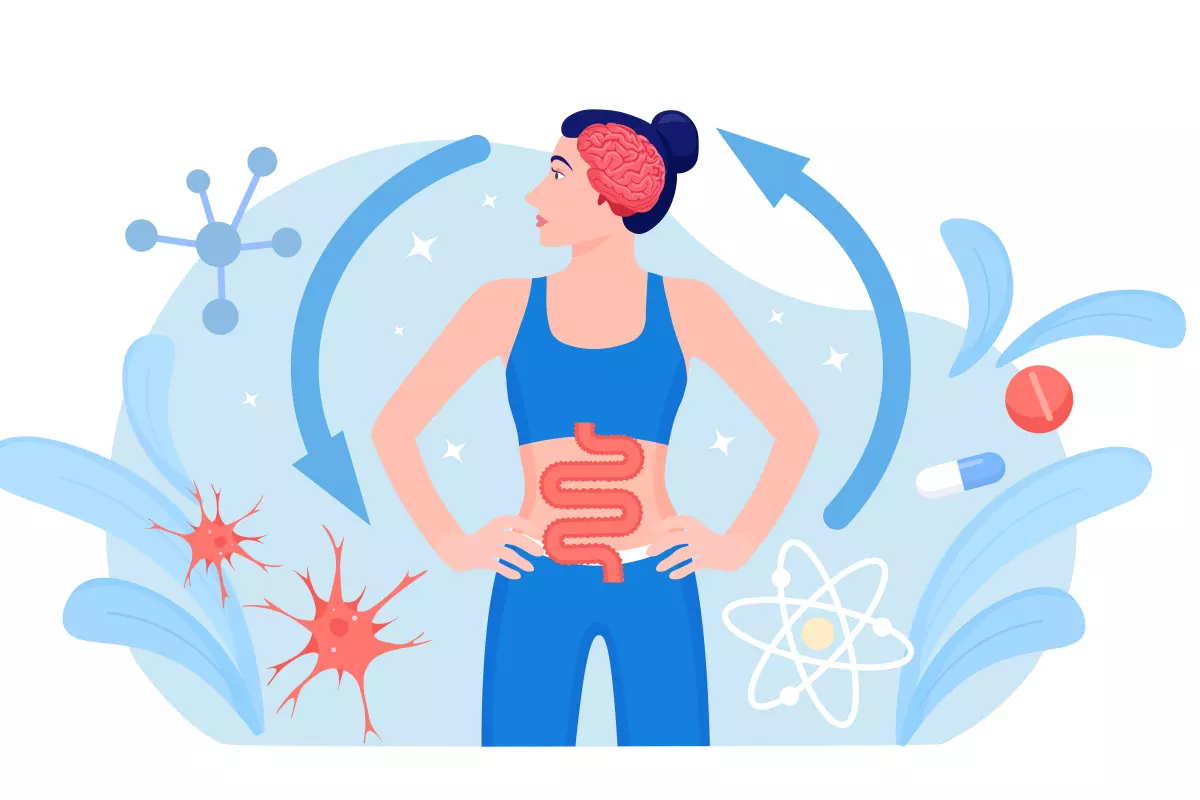A compelling new study has identified a gut-brain pathway in mice that connects specific gut bacteria with an animal's motivation for exercise. If the same pathway is confirmed in humans it could mean modifying one's microbiome may help prompt a desire for exercise.
The relationship between exercise and gut bacteria is a relatively nascent corner of the microbiome research world. A few years ago researchers from Harvard Medical School presented a compelling hypothesis: could the microbes living in our gut be influencing our athletic performance?
Studying the microbiomes of 15 elite marathon runners, the research found not only were specific bacterial species detected in greater abundance in the athletes compared to normal individuals, but there were intriguing changes to the runners' microbiomes in the lead up to, and aftermath of, a big marathon. The study speculated certain bacteria could be "performance enhancing."
A more recent study took the hypothesis one step further and asked whether gut bacteria impacts motivation for exercise. That research found healthy mice reduced their interest in running on a wheel after antibiotics eliminated large swathes of their gut bacteria.
So, to comprehensively investigate any possible association between the gut and exercise motivation, a team of researchers from the Perelman School of Medicine started their research at square one. They gathered several hundred genetically diverse mice and looked for any fundamental biological differences that could account for the variabilities in each animal's exercise performance.
The first analysis dug into the genomic differences between each animal. Despite conducting massive genome-wide associational studies, the researchers could not find any particular genetic characteristic that differentiated the mice that spent lots of time voluntarily exercising from those that chose to exercise little.
Turning to the microbiome, however, the researchers found gut bacteria seemed to be the key. Not only did antibiotic treatment reduce the animals' interest in exercising by about 50 percent, the researchers homed in on two specific bacterial species that seemed to be mostly influencing exercise preferences: Eubacterium rectale and Coprococcus eutactus.
So far, so good, but all the evidence was still associational. The researchers were keen to understand how certain bacteria could be directly influencing exercise motivation.
Zooming in on the mouse brains the researchers discovered exercise triggered a gut-brain dopamine signaling pathway. Sensory neurons in the colon seemed to be stimulated after exercise, and these neurons were sending signals to the brain that led to dopamine releases in the striatum, a region that controls movement and reward.
And what was activating those sensory signals in the gut? You guessed it, the two bacterial species previously linked with increased exercise performance. Both types of bacteria were expressing metabolites called fatty acid amides (FAAs), and these molecules were stimulating the sensory neurons in the gut that then spoke to the brain.
Of the many fascinating questions raised by these findings, the researchers suggest perhaps the most curious is the evolutionary origin for this symbiotic mechanism. One hypothesis raised in the study is that the limited availability of certain nutrients in a given environment could propagate a specific gut bacterial population that is more conducive to prolonged physical activity. So essentially, to keep healthy an animal needed to be motivated to spend lots of time searching for different foods.
A commentary on the study, from a pair of biologists at the University of California, Los Angeles, presents a different hypothesis, noting the relationship may be less about dopamine-induced physical activity and more related to pain-signaling functions from the same gut sensory neurons.
"The evolutionary explanation for such regulatory control by microbes on the cognitive function of their host is puzzling," write the researchers, who did not work on the new study. "It is possible that the effect observed is a coincidence that occurs secondarily to the local gut functions of molecules produced by bacteria. Given that TRPV1-expressing sensory neurons also convey pain-related signaling, an alternative explanation might involve a beneficial interdependence in the relationship between gut health and the ability to engage in energy-consuming physical activities."
Of course, it is important to add the caveat that these findings have so far only been shown in mice. Further work will need to validate whether a similar gut-brain pathway is found in humans.
But, if it is confirmed in humans then the implications for future therapeutic interventions are significant. Not only is it plausible to speculate the potential for diet, lifestyle or metabolite supplementation to aid a person's motivation to exercise but, more generally, the researchers indicate it is likely other neurotransmitters and dopamine-dependent pathways could be affected by the gut. This would mean it's possible a variety of mood disorders may be influenced through the microbiome.
"It thus paves the way for the more general concept of ‘interoceptomimetics’ – molecules that stimulate afferent sensory pathways and thereby influence brain activity by peripheral intervention," the researchers conclude in the study. "If applicable to humans, our findings imply that interoceptomimetics that stimulate the motivation for exercise might present a powerful opportunity to counteract the detrimental health impact of a sedentary lifestyle."
The new study was published in Nature.
Source: Penn Medicine




